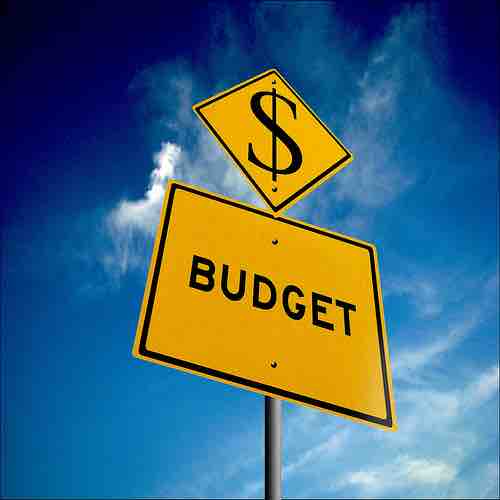The Purpose of Budgeting
A budget is the financial expression of an organization's operating plan for a period of time, usually at least a year . Prior to the beginning of the year, managers prepare a plan for what they hope to accomplish in the coming year in terms of revenue, expenses, and net profit.

Budget
A budget is the financial expression of an organization's operating plan for a period of time, usually at least a year.
Budget can be more formally defined as "a financial document used to project future income and expenses. " The budgeting process may be carried out by individuals or by companies to estimate whether the person or company can continue to operate with its projected income and expenses. A budget may be prepared simply using paper and pencil, or on computer using a spreadsheet program like Excel, or with a financial application like Quicken or QuickBooks.
In summary, the purpose of budgeting is to:
- Provide a forecast of revenues and expenditures
- Construct a model of how a business might perform financially if certain strategies, events, and plans are carried out
- Enable the actual financial operation of the business to be measured against the forecast
- Establish the cost constraint for a project, program, or operation
The Process of Preparing a Monthly Budget
The process for preparing a monthly budget includes:
- Listing all sources of monthly income
- Listing all required, fixed expenses, like rent and mortgage, utilities, and phone
- Listing other possible and variable expenses
Then, as the year unfolds, actual income and expenses are posted to the accounting records, and compared to what was budgeted, and a variance from budget for each item budgeted (e.g., sales, selling expenses, advertising costs) is calculated. Managers responsible for the various income and expense items then examine each variance and, if it is substantial, search for an explanation. For example, it is one thing if electricity costs are 20% higher than what was budgeted for one month because workmen were using power tools to repair the roof. In that case, we can expect costs to return to normal when the repair work is completed. It is quite another thing if costs are higher because the electric company raised its rates. In that case, we can expect that costs will be at least 20% higher in the future.
The Role of Budgeting in Operations
Budgeting helps aid the planning of actual operations by forcing managers to consider how the conditions might change. It thus encourages managers to consider problems before they arise and think of the steps that should be presently taken. It also helps coordinate the activities of the organization by compelling managers to examine relationships between their own operation and those of other departments. Other essential functions of budgets include:
- To control resources
- To communicate plans to various responsibility center managers
- To motivate managers to strive to achieve budget goals
- To evaluate the performance of managers
- To provide visibility into the company's performance
The Two Approaches to Budgeting
There are two basic approaches or philosophies when it comes to budgeting. One approach is based on mathematical models, and the other on people.
The first school of thought believes that financial models, if properly constructed, can be used to predict the future. The focus is on variables, inputs and outputs, drivers and the like. Investments of time and money are devoted to perfecting these models, which are typically held in some type of financial spreadsheet application.
The other school of thought holds that it's not about models, it's about people. No matter how sophisticated models can get, the best information comes from the people in the business. The focus is therefore in engaging the managers in the business more fully in the budget process, and building accountability for the results. The companies that adhere to this approach have their managers develop their own budgets. While many companies would say that they do both, in reality the investment of time and money falls squarely in one approach or the other.